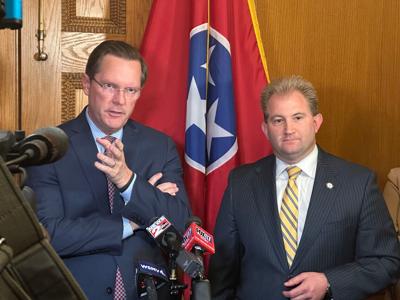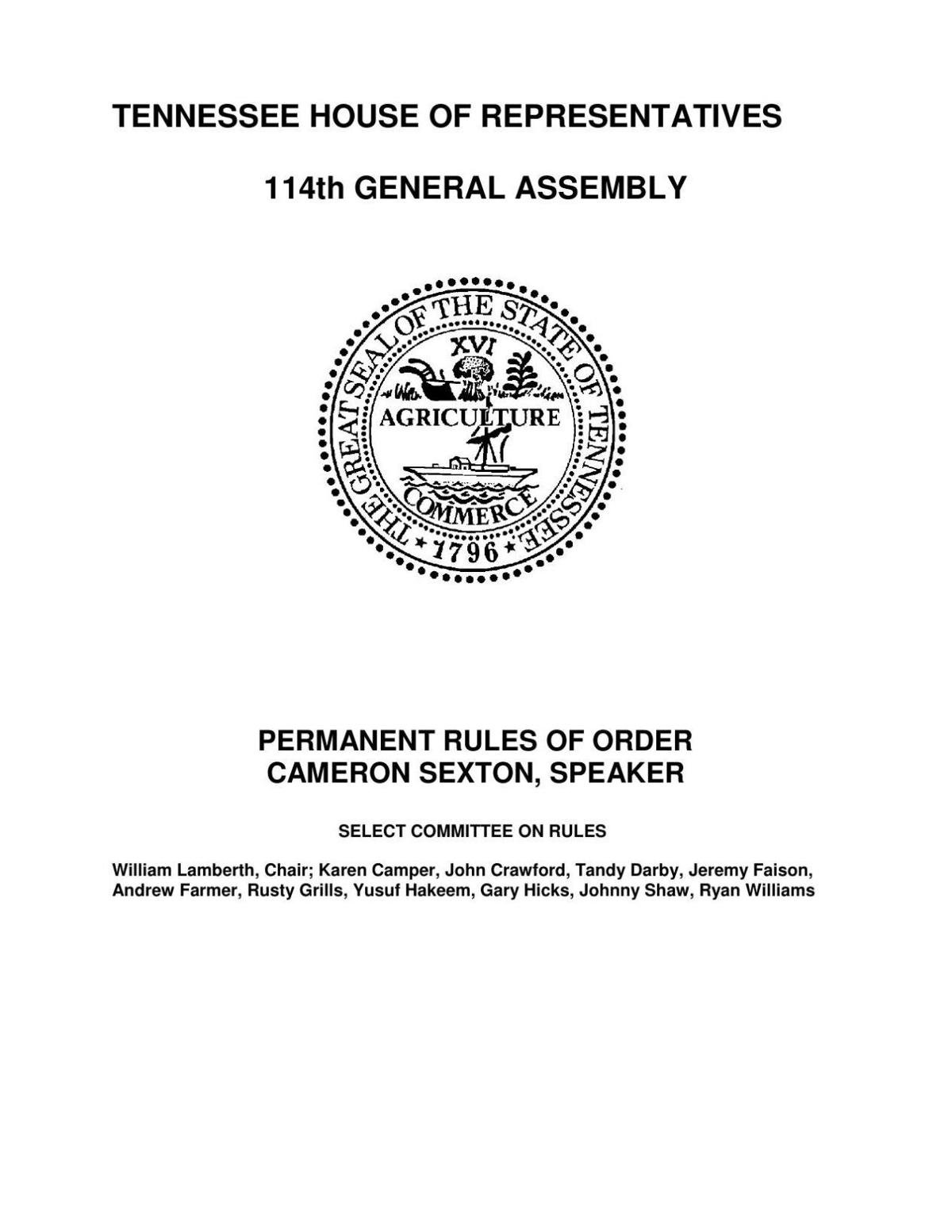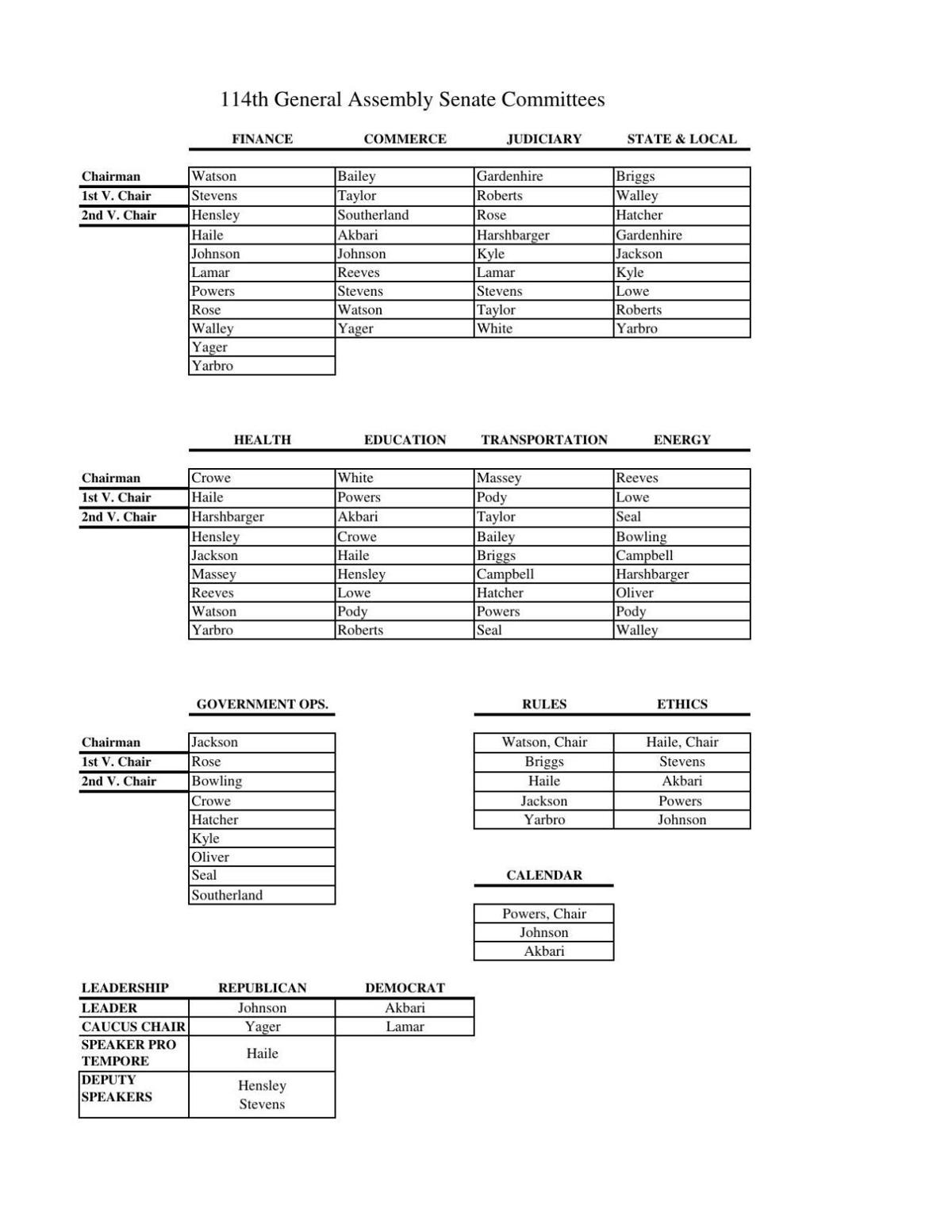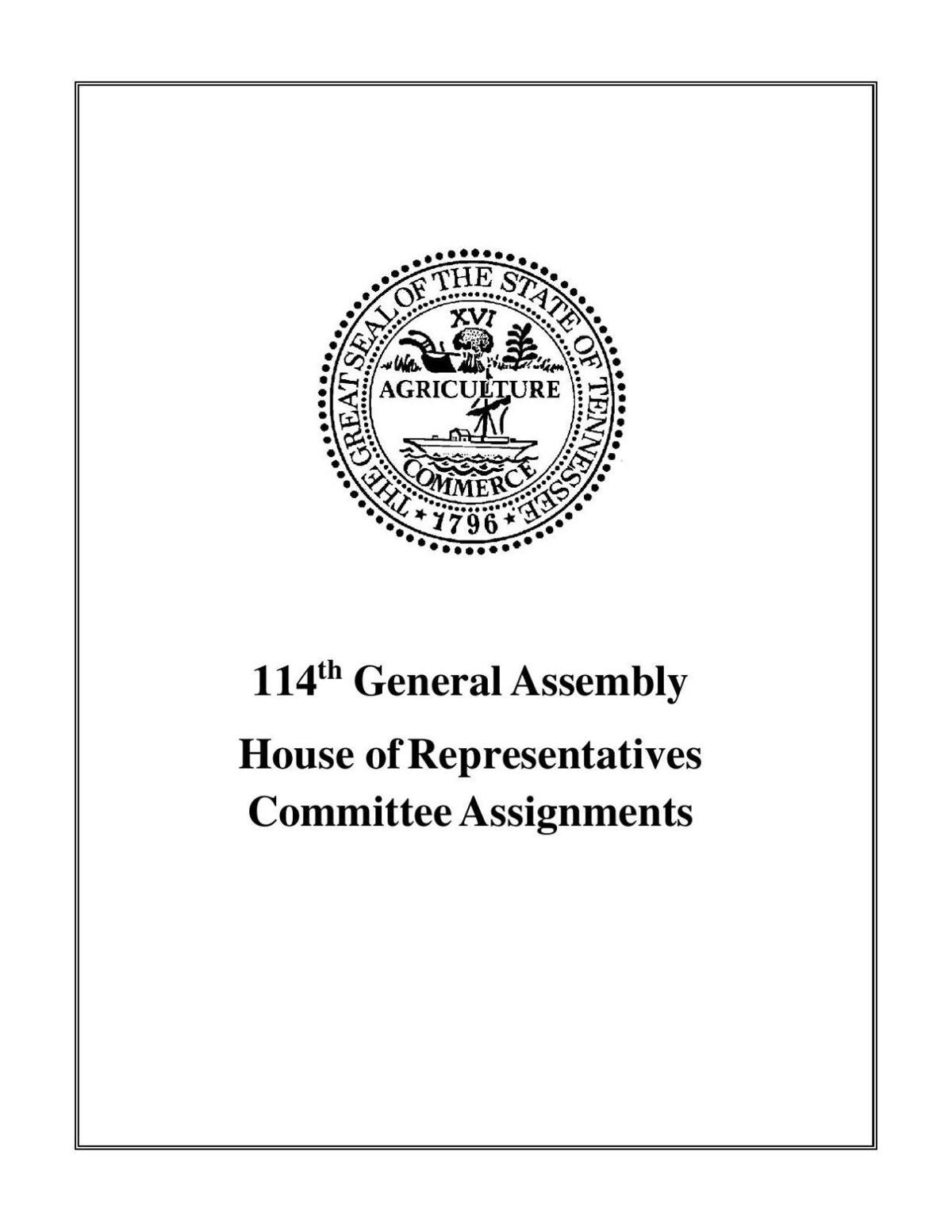At the end of the third organizational day — and technically the first legislative day — of the 114th General Assembly, both chambers adjourned until Monday, Jan. 27, when a special session is expected to be called.
Gov. Bill Lee said in a release Tuesday that he would call a special session to focus on his Education Freedom bill, voucher legislation carried by House Majority Leader William Lamberth (R-Portland) and Senate Majority Leader Jack Johnson (R-Franklin).
State House Speaker Cameron Sexton and Lt. Gov. Randy McNally both released their committee assignments for the general session this week. Those assignments will likely differ in the special session, as separate committees are formed. However, the education committees could be a glimpse into what the lawmakers are thinking.
Sexton and McNally reelected by legislators as speakers of House and Senate; Rules Committee adopts changes along party lines
Notably absent from this year's House Education Committee is Rep. Todd Warner (R-Chapel Hill), who has been an outspoken opponent of the governor's education bill. Warner tells the Scene he is frustrated with the speaker's decision, because he is a "true conservative," and his removal seems solely due to his stance on vouchers.
The new House Education Committee will include chair Rep. Mark White (R-Memphis) and vice chair Rep. Kevin Raper (R-Cleveland) as well as member Reps. Jody Barrett (R-Dickson), Charlie Baum (R-Murfreesboro), Gino Bulso (R-Brentwood), Scott Cepicky (R-Culleoka), Ronnie Glynn (D-Clarksville), Yusuf Hakeem (D-Chattanooga), Kirk Haston (R-Lobelville), Tim Hicks (R-Gray), Chris Hurt (R-Halls), Gloria Johnson (D-Knoxville), Renea Jones (R-Unicoi), Aron Maberry (R-Clarksville), Sam McKenzie (D-Knoxville), Jay Reedy (R-Erin), Lee Reeves (R-Franklin), Tim Rudd (R-Murfreesboro), William Slater (R-Gallatin) and Robert Stevens (R-Smyrna). The committee is broken up into four subcommittees: Education Administration, Education Instruction, Higher Education and K-12.
Previous members who will no longer server on the Education Committee include Reps. Warner, Ed Butler (R-Rickman), Monty Fritts (R-Kingston), Ron Gant (R-Piperton), John Gillespie (R-Memphis), Justin Lafferty (R-Knoxville), Harold Love (D-Nashville) and Antonio Parkinson (D-Memphis).
Tennessee legislature to also address hurricane relief and immigration during session, set to begin Jan. 27
The Senate Education Committee chair will be Sen. Dawn White (R-Murfreesboro), with first vice chair Sen. Bill Powers (R-Clarksville) and second vice chair Senate Minority Leader Raumesh Akbari (D-Memphis). Other members of the committee include Sens. Rusty Crowe (R-Johnson City), Ferrell Haile (R-Gallatin), Joey Hensley (R-Columbia), Adam Lowe (R-Calhoun), Mark Pody (R-Lebanon) and Kerry Roberts (R-Springfield).
All other committee assignments can be found in the documents at the bottom of this story.
Also on Thursday, Democrats were once again foiled by the Republican supermajority when voting on changes to the rules of the General Assembly. House Democratic Caucus Leader John Ray Clemmons (D-Nashville) asked for clarification related to members' speaking time: Each House member has five minutes to ask questions about a bill, but if they ask a question of the sponsor in the well, the time the sponsor takes to answer that question counts against the representative's five minutes. That effectively means a sponsor could utilize all of a member's time in blocking debate.
Said Rep. Johnny Garrett (R-Goodlettsville): "If you ask a 10-second question, it comes to me, or any member in the well, and I use up your remaining time, yes, you would no longer have time to come back to you because that's included in that five minutes."
Though that was the procedure the House operated under during the 113th General Assembly, it is now officially added to the rules. House Minority Leader Karen Camper (D-Memphis) also asked questions about changes to Rules 4 and 19. The change to Rule 19 allows for a House member to vote virtually from a meeting room in the Cordell Hull Building if they are ordered to leave the House chamber — that part of the rule carries over from the previous session. Rule 4 deals with members of the public who are present in the gallery. With this change, the speaker can have a member of the public removed for a day, the following day and potentially all of the session if they are considered unruly.
"When you have a couple of people, I mean, it's literally a few bad apples that try to spoil the bunch," House Majority Leader William Lamberth (R-Portland) said during a press conference at the end of Thursday's business. "All this rule does is say, 'We're gonna pluck those bad apples out and say, unfortunately, for a short time until you can learn to behave yourself in common, decent culture and public, then you're just not gonna be able to be in the observation gallery.'"










